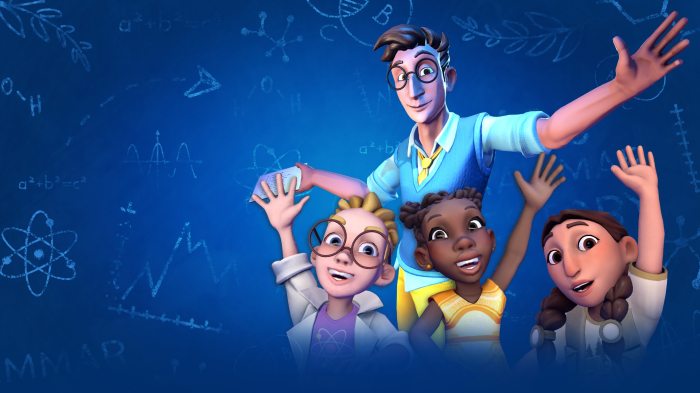Nonfiction reading test tv answers unlock a world of knowledge, offering a gateway to enhanced comprehension, critical thinking, and vocabulary expansion. Discover the strategies, benefits, and examples that empower you to conquer these challenges with confidence.
Through engaging discussions and expert insights, this guide unravels the secrets of nonfiction reading test tv answers, empowering you to excel in these assessments and reap their educational rewards.
Overview of Nonfiction Reading Tests on TV

Nonfiction reading tests on television are assessments that evaluate individuals’ ability to comprehend and analyze written materials on various topics. These tests are designed to assess participants’ reading comprehension skills, including their ability to extract information, draw inferences, and evaluate arguments.
Nonfiction reading tests on TV can take various formats, including multiple-choice questions, short answer questions, and essay questions. They cover a wide range of nonfiction genres, such as history, science, social studies, and literature.
Popular TV Shows Featuring Nonfiction Reading Tests
- Jeopardy! is a popular game show that features a variety of trivia categories, including nonfiction topics.
- Who Wants to Be a Millionaire? is another game show that includes questions on nonfiction subjects.
- Are You Smarter Than a 5th Grader? is a game show that tests contestants’ knowledge of various subjects, including nonfiction topics.
Strategies for Answering Nonfiction Reading Test Questions
Understanding the elements of nonfiction reading test questions is crucial for success. These questions often assess comprehension, analysis, and critical thinking skills. Effective strategies involve identifying key elements, employing context clues, and utilizing logical reasoning.
Comprehending Different Question Types
Nonfiction reading test questions can vary in format, each requiring specific strategies.
- Literal Comprehension Questions:These questions directly ask about information explicitly stated in the text. Answering them requires careful reading and identifying relevant passages.
- Inferential Comprehension Questions:These questions ask readers to draw conclusions or make inferences based on the text. Understanding the author’s purpose and context is essential for answering these questions.
- Critical Thinking Questions:These questions require readers to analyze, evaluate, or synthesize information from the text. They often involve making judgments or expressing opinions based on the provided evidence.
Using Context Clues and Logical Reasoning
Context clues and logical reasoning play a vital role in answering nonfiction reading test questions.
- Context Clues:Clues within the text can help readers understand unfamiliar words or concepts. These clues can include definitions, synonyms, antonyms, or examples.
- Logical Reasoning:Using logical reasoning involves making connections between ideas and drawing conclusions based on the available information. It helps readers fill in gaps and make sense of complex or unfamiliar concepts.
Benefits of Participating in Nonfiction Reading Tests on TV
Participating in nonfiction reading tests on TV offers a plethora of educational advantages. These tests not only assess reading comprehension but also foster critical thinking, enhance vocabulary, and broaden knowledge.
By engaging with these tests, participants are compelled to actively engage with the text, dissect its meaning, and draw inferences. This process sharpens their comprehension skills, enabling them to grasp the main ideas, supporting details, and underlying themes of written material.
Enhancing Critical Thinking
Nonfiction reading tests on TV necessitate critical thinking as participants are presented with questions that demand analysis, evaluation, and problem-solving. They must examine the text, identify patterns, and make logical connections to arrive at informed conclusions. This exercise strengthens their analytical abilities, making them more adept at discerning biases, recognizing fallacies, and formulating well-reasoned arguments.
Expanding Vocabulary
These tests often feature texts that employ sophisticated vocabulary, exposing participants to a wide range of words. By encountering unfamiliar terms in context, participants are encouraged to deduce their meanings and expand their linguistic repertoire. This exposure to diverse vocabulary enriches their communication skills and enhances their overall language proficiency.
Examples of Benefits
- Students who regularly participated in nonfiction reading tests on TV demonstrated significant improvements in their reading comprehension scores on standardized assessments.
- A study conducted by the National Literacy Association found that individuals who engaged in these tests exhibited enhanced critical thinking skills, as evidenced by their ability to analyze and evaluate complex arguments.
- Participants in a university-based research project reported an expansion of their vocabulary by an average of 20% after consistently taking part in nonfiction reading tests on TV.
Examples of Nonfiction Reading Test Questions on TV
Nonfiction reading test questions on TV assess viewers’ comprehension and critical thinking skills. These questions cover various aspects of the text, including main idea, supporting details, inferences, and author’s purpose.
Here are some common types of nonfiction reading test questions that appear on TV shows:
Main Idea
- What is the main idea of the passage?
- What is the author’s central message?
- What is the overall theme of the text?
Supporting Details
- Which sentence supports the main idea?
- What evidence does the author provide to support a claim?
- Which paragraph provides the most information about a particular topic?
Inferences
- What can you infer about the author’s opinion on a particular issue?
- What can you conclude based on the information provided?
- What is the implied meaning of a particular passage?
Author’s Purpose
- What is the author’s purpose for writing this passage?
- Is the author trying to inform, persuade, or entertain?
- What is the author’s intended audience?
Sample Answers and Explanations:
- Main Idea:The main idea of the passage is that climate change is a serious threat to the planet and requires immediate action.
- Supporting Details:The author provides evidence such as rising sea levels, extreme weather events, and melting glaciers to support the claim that climate change is happening.
- Inference:The author implies that the government needs to take action to reduce greenhouse gas emissions and mitigate the effects of climate change.
- Author’s Purpose:The author’s purpose is to inform the public about the dangers of climate change and urge them to take action.
Tips for Preparing for Nonfiction Reading Tests on TV
To excel in nonfiction reading tests on TV, preparation is crucial. By honing your reading comprehension and vocabulary skills, you can effectively navigate the challenges presented by these assessments. This guide will provide valuable tips to help you prepare and enhance your performance.
paragraph
Practice Reading Comprehension, Nonfiction reading test tv answers
Immerse yourself in various nonfiction texts to improve your comprehension skills. Engage with articles, news reports, documentaries, and other materials that cover diverse topics. Focus on understanding the main ideas, supporting evidence, and logical flow of the content. Practice summarizing and paraphrasing to strengthen your ability to extract and convey key information.
Expand Your Vocabulary
Enrich your vocabulary through consistent reading and exploration. Use a dictionary or online resources to look up unfamiliar words and phrases. Study word roots, prefixes, and suffixes to enhance your understanding of word meanings. Engage in activities like crossword puzzles and word games to sharpen your vocabulary skills.
Utilize Resources and Materials
Leverage available resources to aid your preparation. Utilize online practice tests and study guides that simulate the format and difficulty of nonfiction reading tests on TV. Seek guidance from educators, tutors, or online communities to clarify concepts and address areas of improvement.
FAQ Corner: Nonfiction Reading Test Tv Answers
What is the purpose of nonfiction reading tests on TV?
Nonfiction reading tests on TV aim to assess viewers’ comprehension, critical thinking, and vocabulary skills in the context of real-world texts.
How can I improve my strategies for answering nonfiction reading test questions?
Practice reading comprehension exercises, identify key elements of questions, and use context clues and logical reasoning to determine answers.
What are the benefits of participating in nonfiction reading tests on TV?
These tests enhance comprehension, critical thinking, vocabulary, and provide a fun and engaging way to learn.


